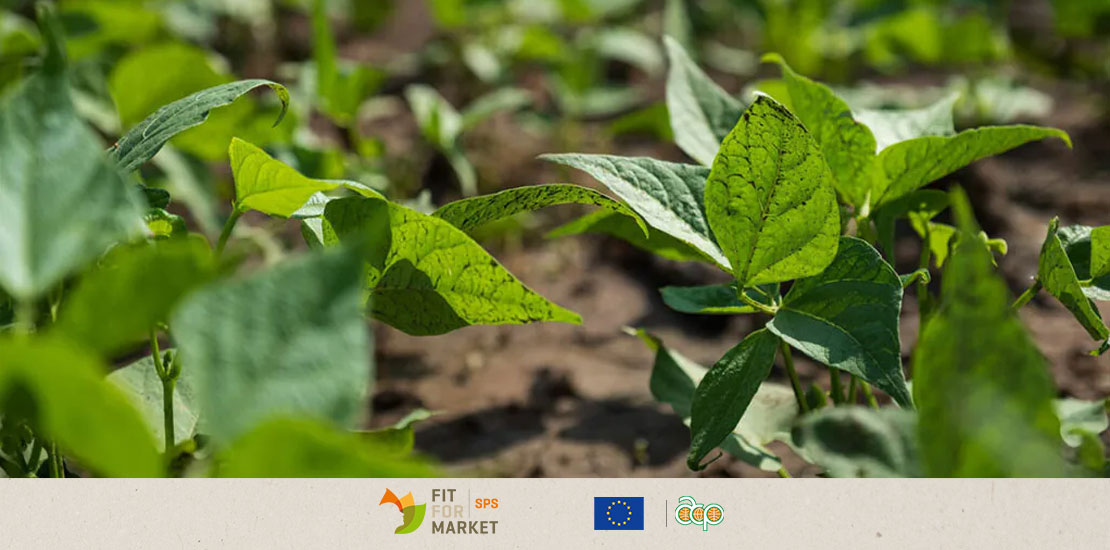EU and UK : notification of changes to plant protection product (PPP) approvals – April-June 2022
- 19/07/2022
- Posted by: Gaetan Dermien
- Category: ACP EN

Following the departure of the UK from the EU, COLEACP’s monitoring of pesticide regulations now covers both EU and GB approval changes, enabling us to keep COLEACP members and partner-beneficiaries up-to-date.
The European Commission (EC) has recently issued notification of changes to plant protection product (PPP) approvals within the EU, some of which are important for ACP horticulture. These include:
- Approval of Beauveria bassiana strain 203
- Approval of Spodoptera exigua multicapsid nucleopolyhedrovirus (SeMNPV), isolate BV-0004 as a low-risk substance
- Renewal of approval of bifenazate
- Non-approval of 1,3-dichloropropene and chloropicrin
- Changes of the conditions of approval of sulfoxaflor
- Changes of the conditions of approval of paraffin oils (CAS No 64742-46-7, 72623-86-0, 97862-82-3)
- Expiry of Isopyrazam approval period
- Notification to the WTO of changes to the conditions of approval of penflufen
Great Britain (GB) recently approved the substance cinmethylin.
How will ACP producers/exporters be affected?
Non-approval, withdrawal of approval, or expiration of approval mean that EU/GB maximum residue levels (MRLs) are likely to be reduced to the limit of determination (LoD) which, in most cases, will mean that they can no longer be used on crops for export to the respective countries.
What should ACP producers/exporters do now?
If you currently use 1,3-dichloropropene, chloropicrin or isopyrazam on crops destined for the EU market, you need to ensure that current uses allow you to comply with EU MRLs, or start looking for alternatives. If this is likely to cause you significant problems, and you fear being left without effective and available alternatives, please contact COLEACP at: network@coleacp.org.
We will keep you informed as more information becomes available.
In this Flash Info, ‘key active substances’ refers to those used/registered in one or more ACP country on horticultural crops that are frequently exported regionally or internationally.
While COLEACP makes every effort to provide comprehensive information about EU and GB PPP regulatory changes, it is possible that some PPPs or crops relevant to you are not included in our list of key substances/crops. We recommend therefore that you review the following section, which details all the changes made so far in 2022, to check for any others that could affect you. If you see any PPP that you use on crops for export to the EU or GB, we recommend that you check the regulation itself using the link provided.
Changes of approval in the EU
Beauveria bassiana strain 203
Beauveria bassiana is a naturally occuring fungal parasite used to control various pests on a wide range of crops.
The European Commission (EC) has published Commission Implementing Regulation (EU) 2022/501 approving the use of Beauveria bassiana strain 203 in the EU.
Spodoptera exigua multicapsid nucleopolyhedrovirus (SeMNPV), isolate BV-0004
Spodoptera exigua nucleopolyhedrovirus is a virus widespread in nature and used to control armyworms on horticultural crops.
The European Commission (EC) has published Commission Implementing Regulation (EU) 2022/496 approving Spodoptera exigua multicapsid nucleopolyhedrovirus (SeMNPV), isolate BV-0004 as a low-risk substance for use in the EU.
Bifenazate
Bifenazate is an effective pesticide for phytophagous mite control (spider mites, six-spotted spider mite, etc.) used in particular on avocado, curcubits, apples & pears, quince, eggplants, cucumbers, watermelon, strawberries and tomatoes.
The European Commission (EC) has published Commission Implementing Regulation (EU) 2022/698 renewing the approval of bifenazate. New expriration date was set to 30 June 2037.
1,3-dichloropropene
1,3-dichloropropene is a soil nematicide used pre-planting as a fumigant to control soil-borne pests and for suppressing weed seed germination.
1,3-dichloropropene is currently not approved in the EU. Following submission and review of the registration dossier, the data provided was deemed not sufficient and EFSA was not able to finalize the risk assessment for this product. The decision was therefore taken not to approve 1,3-dichloropropene for use in the EU (Commission Implementing Regulation (EU) 2022/740).
In ACP countries this decision only concerns the use of 1,3-dichloropropene on crops that are exported to the EU, where growers will have to comply with the EU MRLs at the limit of determination (0.01 mg/kg).
It is possible that this decision could be changed if a further application for the approval of 1,3-dichloropropene in the EU is submitted.
Chloropicrin
Chloropicrin is a pre-plant soil fumigant used to control soil borne fungi, diseases and nematodes. It is also a fumigant insecticide used in a wide variety of crops (strawberries, peppers, onions, curcubits, tomatoes, ornamentals, nursery stock, tree crops, olives). Pests controlled include caterpillars, aphids, scale insects, spidermites, whiteflies and nematodes.
Chloropicrin is currently not approved in the EU. Following submission and review of the registration dossier, the data provided was deemed not sufficient, and EFSA was not able to finalize the risk assessment for this product. It was therefore decided not to approve chloropicrin for use in the EU (Commission Implementing Regulation (EU) 2022/751).
In ACP countries this decision only concerns the use of chloropicrin on crops exported to the EU, where growers will have to comply with the EU MRLs at the limit of determination (0.01-0.005 mg/kg).
It is possible that this decision could be changed if a further application for the approval of chloropicrin in the EU is submitted.
Sulfoxaflor
The European Commission (EC) has published Commission Implementing Regulation (EU) 2022/686 regarding the conditions of approval of sulfoxaflor.
Using the data provided by the manufacturer, EFSA was not able to assess the risk for bumble bees and solitary bees for outdoor uses. In light of all the available pertinent information, it was considered inappropriate to maintain the approval of the active substance for outdoor use at this time. As of 19 May 2022, the use of sulfoxaflor in the EU will be restricted only to uses in permanent greenhouses.
At the present time, this change only affects uses of sulfoxaflor within the EU. It does not concern crops for export in ACP countries.
Paraffin oils (CAS No 64742-46-7, 72623-86-0, 97862-82-3)
Paraffin oils are used in the field and under glass to control sucking and chewing insects on fruit and other crops (vines, ornamentals). They are also used as a commodity chemical and as an adjuvant. Pest controlled include in particular scale, mites and thrips.
The European Commission (EC) has published Commission Implementing Regulation (EU) 2022/800 autorising the use as a fungicide in addition to the uses as an insecticide and acaricide in the EU.
Isopyrazam
Isopyrazam is a persisent and broad spectrum fungicide for use on cereals and other crops (including banana, vegetables, ornamentals and various speciality crops) to control Septoria tritici, rusts, Black sigatoka (banana leaf spot disease), scab, powdery mildews and Alternaria.
The European Commission (EC) has published Commission Implementing Regulation (EU) 2022/782 withdrawing the approval of this product in the EU (date into force: 6 june 2022).
It is expected that the EC will lower the MRLs of this substance at the end of the grace period (8 December 2022). No information has yet been published by the EC, but COLEACP will issue an update as soon as more details become available.
Changes of approval in GB
Cinmethylin
In May 2022, cinmethylin was approved for use in GB. The regulation entered into force on 7 June 2022. Cinmethylin is a selective, pre-emergence herbicide used mainly for rice and cereal crops. This change was coupled with the review of MRLs on various commodities (GB MRL 2022/008), and values were maintained at the limit of determination (0.01 mg/kg).
All PPP approval changes introduced in 2022
Table 1 shows all changes to PPP approvals so far introduced in the EU and GB in 2022.
If you require additional information, or face particular problems as a result of these changes, please contact COLEACP at: network@coleacp.org.
Further proposed approval change
Table 2 presents WTO notifications of a Draft Regulation that contains some active substance approvals with a potential impact on ACP horticulture products.
Table 2. World Trade Organization (WTO) notifications of Draft Regulation (European Union (EU) and Great Britain (GB)) concerning active substance approvals, potentially affecting horticulture products
| Active substance | Key substance* | Active substance status | Publication | Link |
| Penflufen | Conditions of approval | 05/05/2022 | link | |
| Penflufen | Conditions of approval | 11/05/2022 | link | |
*Key active substances are those used/registered in one or more African, Caribbean and Pacific (ACP) country on horticultural crops that are frequently exported regionally or internationally. | ||||
The World Trade Organization (WTO) Technical Barrier to Trade (TBT) notifications advise that an active ingredient is subject to a proposed non-renewal or modification of condition of approval for use in the EU (usually linked to human or environmental risks). This is not necessarily indicative of the final EU decision, as further Committee work is done by the EC and EU Member States after notification, which can change the proposal.
The draft regulation should be notified to the WTO Technical Barriers to Trade Information Management System (TBT IMS) for a commenting period of 60 days.
The publication of the definitive regulation may take a significant period of time after the WTO consultation has been completed. However, this is an opportunity to become informed in advance on foreseen regulation changes and ensure a smooth transition when the new text comes into force (early preparation). It is also the opportunity to submit concerns on potential difficulties (trade barriers) related to the proposed changes. For WTO member countries, comments can be submitted via their National Notification Authority.
Reference
Lewis, K.A., Tzilivakis, J., Warner, D. and Green, A. (2016). An international database for pesticide risk assessments and management. Human and Ecological Risk Assessment: An International Journal, 22(4): 1050-1064. DOI: 10.1080/10807039.2015.1133242



![EU and GB MRL changes in 2025 (January-March 2025) 9-FFM+-[ENG]](https://news.colead.link/wp-content/uploads/2024/06/9-FFM-ENG-150x150.jpg)